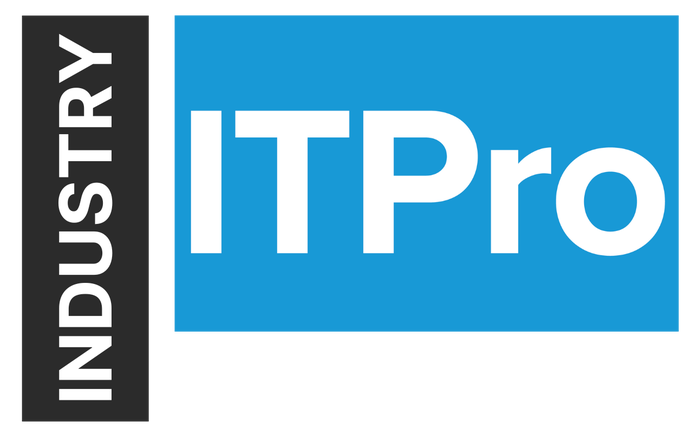
Insight and analysis on the information technology space from industry thought leaders.
5 Pitfalls That Can Hold Back Industrial IoT Projects5 Pitfalls That Can Hold Back Industrial IoT Projects
Steve Brumer, a partner at 151 Advisors, reflects on mistakes that can sink industrial IoT projects.

It’s easy to get lost in the industrial IoT ecosystem. With hundreds of vendors and almost as many platform providers, there’s a plethora of protocols and connectivity options, plus there’s cybersecurity and data science, which are worthy fields of study unto themselves.
But too few companies launching industrial IoT projects have given careful thought to basics such as how their IIoT strategy will improve life for their end users, monetization or the competitive landscape, said Steve Brumer, a partner at 151 Advisors, who is speaking on the industrial and enterprise IoT market at the upcoming Sensors Expo & Conference. Here, Brumer shares several stumbling blocks that can besiege industrial IoT projects.

1. Lack of Senior Support and Guidance
IoT adoption rates have not kept up with early projections, which suggested there would be 50 billion IoT devices by 2020. Most analysts now put that figure closer to 20 billion. “We’re not necessarily getting senior management buy-in on a consistent basis,” Brumer said.
But while the lack of senior-level or board support can sink IIoT projects, the problem can be especially vexing in the smart city space, where politics can make for a long sales cycle. “You could have a mayor in the city council who initially approves a project, and then see everything get delayed when someone new gets elected,” Brumer said. “I think this problem is one of the reasons why the smart cities market is not rolling out as prevalently as everybody had thought it would be by now.”
2. Falling for Magical Thinking
The Internet of Things market is relatively immature but continues to see significant support from tech and industrial heavyweights, who have committed billions of dollars to help drive the market. The dynamic has led many firms hoping to strike it rich by doing little more than showing up. For instance, Brumer recounts recently speaking with an agricultural company outside of the United States that wanted to enter the domestic market. “Their question was: ‘How are we going to make money in the United States?’ I asked: ‘Well, how are you making money today?’” Brumer said. “They responded: ‘Well, we’re not making any money today.’” In addition, the company hadn’t given much thought to the U.S. smart agricultural partner ecosystem. Brumer added: “I asked them: ‘You got to partner with someone because you don't do everything for the farm, right? Which piece do you want to focus on?” Although this story is just an anecdote, many organizations are still struggling with how to figure out how to make money from Internet of Things deployments. While it may be relatively easy to set up a proof-of-concept project, it is a different matter to launch an IoT-fueled business. “I think a lot of times, companies are doing trials in the industrial IoT side because someone told them to, but there was no real reason to do it,” Brumer said. While there can be a benefit in exploration, companies that lose track of basics such as ROIs or getting buy-in from all of the necessary senior team leaders are likely to see their IoT initiatives stuck in proof-of-concept purgatory.
3. Underestimating Integration
Internet of Things, in the enterprise and industrial space, has always been a bit like a jigsaw puzzle, requiring a study of everything from connectivity options, security concerns and machine learning. And while there are hundreds of IoT platforms to pick from, there are, arguably, no end-to-end solutions. And so the companies that are faring best are integrators — they think in terms of ecosystems. Recent evidence of this can be seen in Rockwell Automation’s more than $1-billion investment in PTC ThingWorx. “PTC is by far the most deployed and most successfully integrated platform in the industry today. Rockwell’s billion-dollar deal validates that,” Brumer said.
4. Overemphasizing IoT Platforms
In 2018, there are so many IoT platforms it is difficult to keep track of them all. A significant number of companies that end up creating IoT platforms didn’t start out that way. “I do think that there are legitimate challenges [in the IoT market] that convince companies to believe that they can build a better mousetrap,” Brumer said. But many companies entering the IoT platform marketplace have given short shrift to understanding the competitive landscape. “Anytime that I've had a client that has said they want to build an IoT platform, I ask them: ‘How much money, effort and time is it going to take? And what would it take to work with one of these hundreds of platform companies and white label their stuff?’”
5. Buzzword Bonanza
Determining how to best monetize the industrial IoT is challenging enough by itself. But the tech industry’s continual focus on the next big thing can make it even more difficult. While comparatively few companies have deployed production-scale industrial IoT projects, a handful are eyeing new technologies such as blockchain. “But again, it boils down to who's deploying it, and what’s the ROI? What's the value proposition for, for spending the time and energy and effort to do that? With blockchain, I haven't seen it yet,” Brumer said.
While there is value in learning about up-and-coming technologies, Brumer recommends against falling for hype or equating an increasing use of acronyms with an improved understanding of the matter at hand. “There are so many buzzwords like OT and IT,” Brumer said. While IT is a commonly used term, most people who work in operations weren’t exactlly looking for a new acronym with which to identify themselves. Brumer asked: “Why are we making this more confusing?”
Read more about:
IoT World TodayAbout the Authors
You May Also Like






.jpg?width=700&auto=webp&quality=80&disable=upscale)
